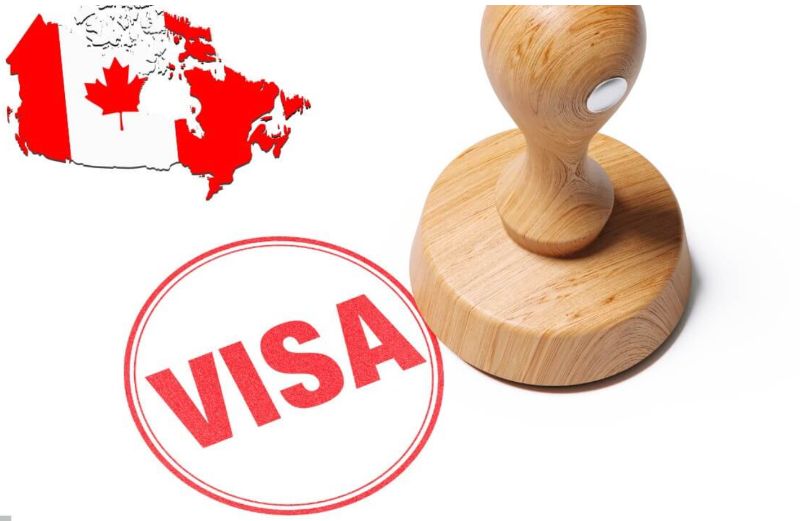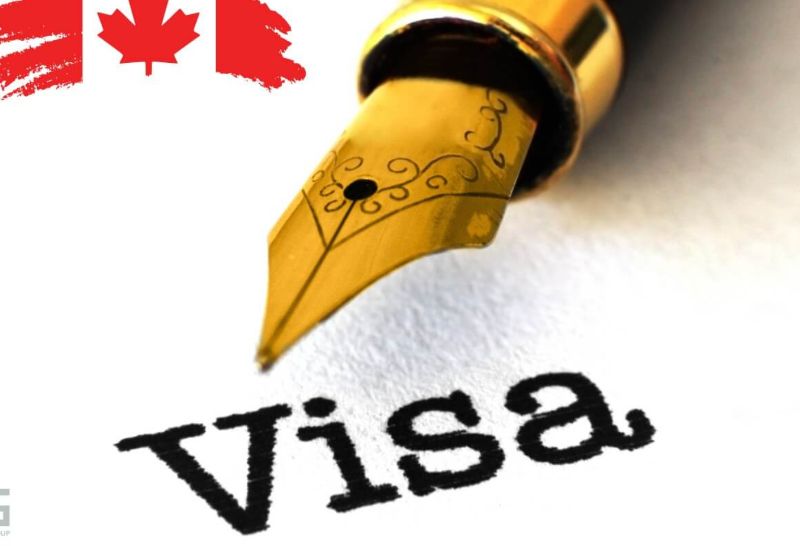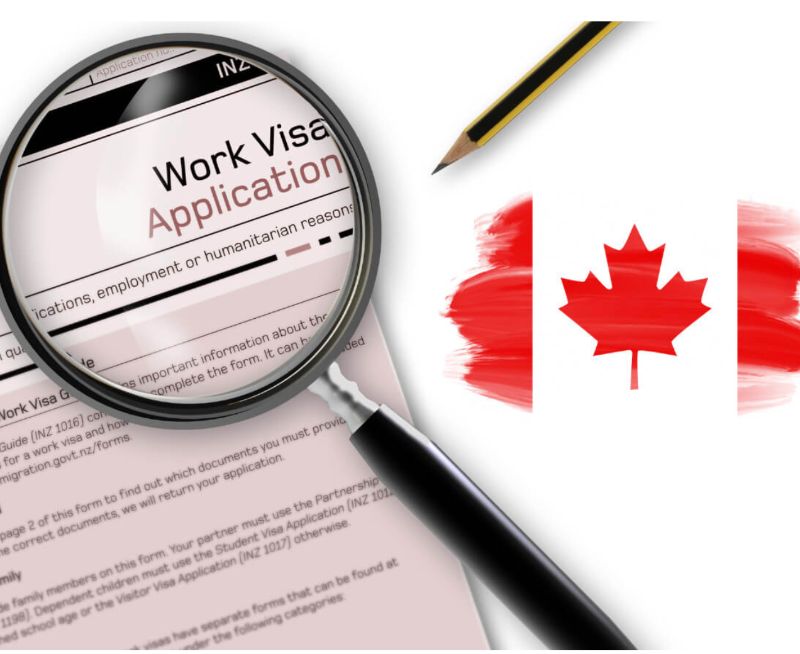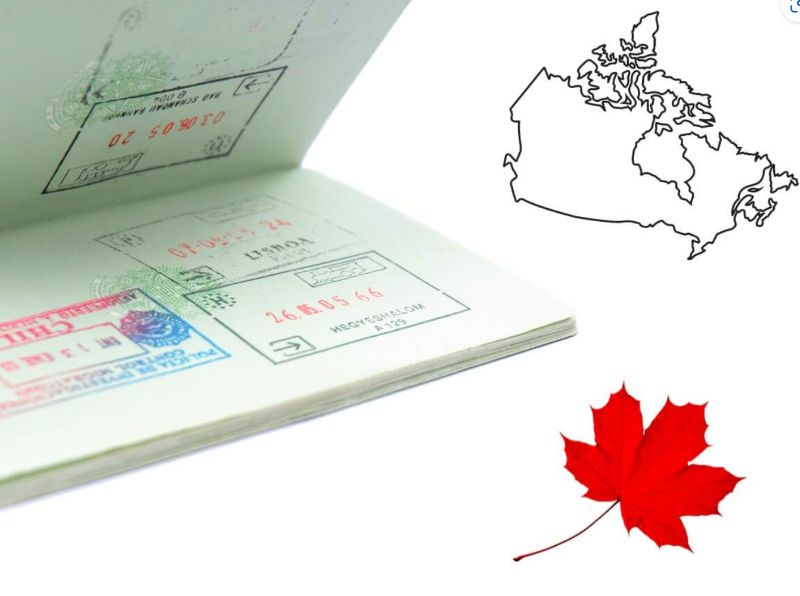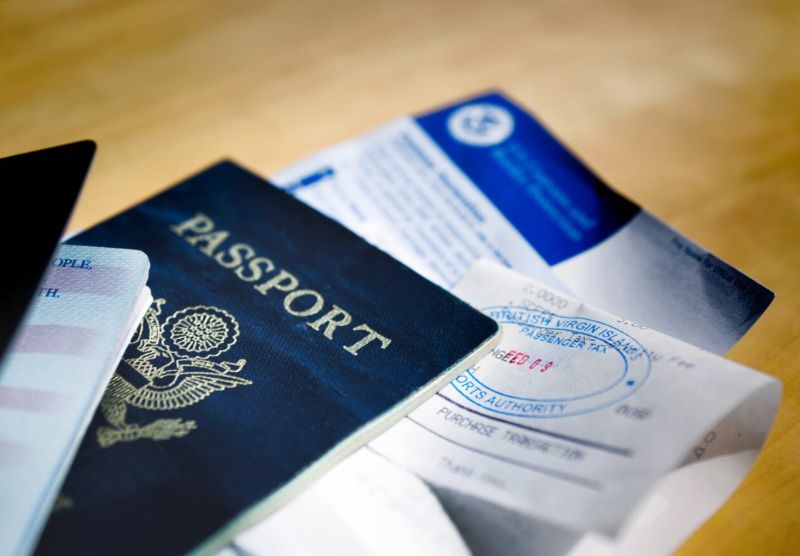Get free consultation
Fill out the form and we will contact you
The Canadian government has established various types of visas to support foreign nationals who wish to immigrate, live, and work long-term in this beautiful country. In this article, we will introduce you to the five most popular types of Canadian visas and their purposes. Let's explore these types of Canadian visas to find out how to apply for the most suitable visa for your trip to Canada in the article below from Second Citizenship!
Here’s important information about the five most commonly used types of Canadian visas:
Temporary Canadian Visa: This visa allows you to enter Canada for a specific period of time. It is suitable for short-term trips such as tourism, business, or visiting family and friends.
Permanent Residency Visa for Canada: This visa is for individuals who wish to settle permanently in Canada. It allows you to become a permanent resident and enjoy the rights similar to a Canadian citizen, but without the right to vote.
Express Entry Program Visa: Designed for individuals with skills and work experience that match the needs of the Canadian labor market. This program helps you immigrate quickly and work in sectors needed by the Canadian economy.
Provincial Nominee Program Visa: This visa is for foreign workers who want to work in a specific Canadian province. The province nominates you for permanent residency, allowing you to settle in that area.
Canada Student Visa: This visa allows you to study at educational institutions or schools in Canada. It usually requires you to be accepted into a valid Canadian school and demonstrate financial ability to cover tuition and living expenses.
Depending on the purpose and length of your stay, each type of visa has different requirements and application procedures. Let’s dive deeper and choose the most suitable visa for your needs!
The temporary Canadian visa is divided into two main types: a single-entry visa and a multiple-entry visa.
A temporary Canadian visa limits the duration of your stay in Canada
Single Entry Visa: Allows you to enter Canada only once. After leaving the country, you cannot return using this visa.
Multiple Entry Visa: Allows you to enter and leave Canada multiple times during the validity of the visa.
Here are the popular types of temporary visas currently available:
Canada Tourist Visa: For individuals wishing to visit Canada for tourism. This visa has different durations: 3-month tourist visa, 6-month tourist visa, and 1-year tourist visa
Super Visa Canada: For grandparents or parents of Canadian permanent residents or citizens, allowing them to visit their children or grandchildren.
Diplomatic and Official Visa: For diplomats and foreign leaders visiting Canada for official duties.
Courtesy Visa: Issued to individuals who do not meet the criteria for a diplomatic or official visa but whose visit is considered important, such as trade delegations or diplomats.
Work Visa: For individuals coming to Canada for work purposes. Requires a job offer letter from a Canadian employer.
Give Birth in Canada Visa: For pregnant women wishing to give birth in Canada. The child born in Canada will become a Canadian citizen. Applicants must meet certain criteria to be eligible for this visa.
Organ Donation Visa: For individuals coming to Canada to donate an organ to a permanent resident or Canadian citizen.
Felicitation Visa Canada: For Canadian citizens with dual nationality, enabling them to travel without a Canadian passport.
Temporary Work Visa: For individuals who have received a work offer in Canada for less than 6 months. Applicants must provide a valid work invitation letter.
Temporary Resident Permit: For individuals coming to Canada for purposes other than those covered by a temporary resident visa (TRV).
Working Holiday Visa: For youth from 30 countries (list of International Experience Canada) coming to Canada for a short-term work experience.
Canada Transit Visa: For citizens of countries that require a visa when their international flight stops at a Canadian airport on the way to another country.
Each type of visa has its own specific requirements and conditions, so you should choose the visa that best matches your purpose and duration of stay in Canada.
Types of Canadian Visas
A Permanent Resident Visa for Canada allows you to settle permanently in the country. Below are the common types of permanent residency visas:
Investment Immigration Program (Start-Up Visa Canada):
Purpose: For investors who want to invest in Canada's economy.
Requirements: Investors must have the financial capability as per the regulations of the Canadian government.
Start-Up Visa Program:
Purpose: For individuals who want to contribute to the Canadian economy by owning and managing a business.
Requirements: Applicants must commit to owning at least 1/3 of the business in Canada and meet the financial requirements set by the government.
Self-Employed Worker Visa:
Purpose: For individuals with experience in agriculture, culture, sports, or business.
Requirements: Applicants must prove their skills in the registered field and the value of their contribution to the business.
Family Sponsorship Program:
Purpose: Helps families reunite in Canada.
Requirements: Spouses and dependents of Canadian permanent residents or citizens can immigrate permanently. The sponsor must commit to providing financial support for the sponsored members for 3 to 10 years.
Live-In Caregiver Program (LCP):
Purpose: For foreigners who come to Canada to take care of children, the disabled, or the elderly.
Requirements: Participants must live in a private home with the family they work for.
With a permanent resident visa, you will live in Canada with similar rights as a citizen, including the right to work for any company or organization, start your own business, or engage in business activities in Canada.
When you have a Canada Permanent Resident visa, you can settle permanently
The Express Entry Program visa is one of Canada's key visa types, designed to attract skilled workers to live and work in the country. Below are the popular Express Entry programs:
Skilled Worker Visa (Federal Skilled Worker Program):
Purpose: For individuals with high professional skills and their family members, allowing them to come to Canada to live and work in any province.
Requirements: Applicants must score at least 67 points on the CRS (Comprehensive Ranking System) and demonstrate financial capability.
Skilled Trades Visa (Federal Skilled Trades Program):
Purpose: For skilled tradespeople who want to work in Canada and become permanent residents.
Requirements: Applicants are assessed and ranked based on the CRS system, meeting occupation and professional skill criteria.
Canadian Experience Class Visa (Temporary Worker Visa):
Purpose: For foreign workers currently in Canada on a temporary work visa or study permit.
Requirements: Applicants must have at least 12 months of work experience in Canada, meet language proficiency requirements in English or French, and agree to live outside of Quebec.
With an Express Entry visa, you have the right to reside and work in Canada, freely choose your profession and job, move within Canada, and return to your home country without affecting your visa status.
The Express Entry program visa is for foreigners coming to Canada to work
The Provincial Nominee Program (PNP) visa is one of the key pathways for foreigners to settle and work in Canada. This program allows Canadian provinces and territories to nominate candidates who meet the labor and economic development needs of that specific province or territory. Below are some basic details about the Provincial Nominee Program visa:
Submit Nomination Application: Applicants must submit an application to the province or territory where they wish to settle and work. Each province has different criteria and programs to select candidates.
Receive Nomination: If accepted, the applicant will receive a nomination letter from the province or territory. This letter confirms that the province or territory has selected the applicant for nomination for Canadian permanent residency.
Submit Permanent Residency Application: After receiving the nomination letter, the applicant will apply for permanent residency through the Immigration, Refugees and Citizenship Canada (IRCC) with the support of the provincial nomination letter.
Economic Nominee Program: Designed to attract workers with skills and experience that match the labor needs of the province.
International Student Nominee Program: For international students who have completed their education at designated institutions in the province and intend to settle permanently.
Entrepreneur Nominee Program: For investors or entrepreneurs who wish to start and operate a business in the province.
Skilled Worker Nominee Program: For workers with high-level skills and specific work experience required by the province.
Work Experience: Applicants typically need work experience in occupations that are in demand in the province or territory.
Language Skills: Many provinces require applicants to meet a certain level of proficiency in English or French.
Financial Capacity: Applicants must prove they have the financial ability to support themselves while settling in the province before securing employment.
The Provincial Nominee Program visa not only provides applicants with an opportunity to settle permanently in Canada but also helps provinces and territories meet their labor and economic development needs.
Visa for Provincial Nominee Programs
The Canadian study permit allows foreign nationals to study at designated learning institutions (DLIs) in Canada. This is an important visa for those who wish to experience Canada’s high-quality education system. Below are some detailed information about the Canadian study permit:
Designated Learning Institution: You can only study at designated learning institutions (DLIs) in Canada. These institutions have been recognized and authorized by the Canadian government.
Validity Period: The study permit is valid for the duration of your program and an additional 90 days after the program ends. This 90-day period allows you to prepare to leave Canada or apply for an extension if necessary.
Visa Extension: If you cannot complete your program within the duration of your study permit, you can apply for an extension. To extend, you must prove that you are still enrolled at a DLI and need additional time to finish your program.
Study: You are allowed to study at a designated learning institution in Canada and have access to the institution’s educational resources and facilities.
Work: While studying, you can work part-time (up to 20 hours per week) during academic sessions and full-time (during summer or scheduled breaks) without needing an additional work permit.
Change of Plans: If you complete your program earlier than expected, you will have an additional 90 days to prepare to leave Canada or apply for a visa extension.
The Canadian study permit not only opens opportunities for education in a multicultural international environment but also provides students with the chance to experience and explore Canadian culture, as well as the opportunity to work during their studies to gain valuable experience.
Visa for those who want to study at school in Canada
When applying for a Canadian immigration visa, there are several key points you need to be aware of to ensure a smooth process:
Since 2018, applicants for Canadian immigration visas must have lived in Canada for at least 3 years out of the 5 years prior to applying. This means you need to accumulate enough time living in Canada to be eligible for applying for an immigration visa.
Some provinces have easier immigration visa programs than others. Provinces such as Quebec, Manitoba, Nova Scotia, and Saskatchewan often have simpler requirements and higher chances of obtaining an immigration visa. However, each province has its own criteria and regulations, so it is important to do thorough research before applying.
The immigration visa application requires many documents, and each visa type has its own list of required documents. Be sure to carefully read the instructions, fill out the correct forms, and gather all necessary certifications from the designated authorities or organizations. Missing documents may result in your application being rejected, affecting future visa applications.
During the application process, you will need to undergo a health examination as required by the International Organization for Migration (IOM). The health check is a mandatory part of the visa application. To save time, you can undergo the medical exam beforehand and send the results directly to the consulate.
Applicants with a poor criminal record may face difficulties in obtaining an immigration visa. Ensure that you do not have any criminal history or legal issues that could affect your ability to enter Canada.
Notes when applying for a Canada visa
In conclusion, applying for a Canada visa can be a complex process, but with thorough preparation and support from experts at Second Citizenship, you can increase your chances of success and make it easier to achieve your goals.
Fill out the form and we will contact you
![Types of Canada Visas – Top 5 Common Visas [Update 2024]](https://quoctichthuhai.com/storage/cac-loai-visa-canada-6-430x430.jpg)


